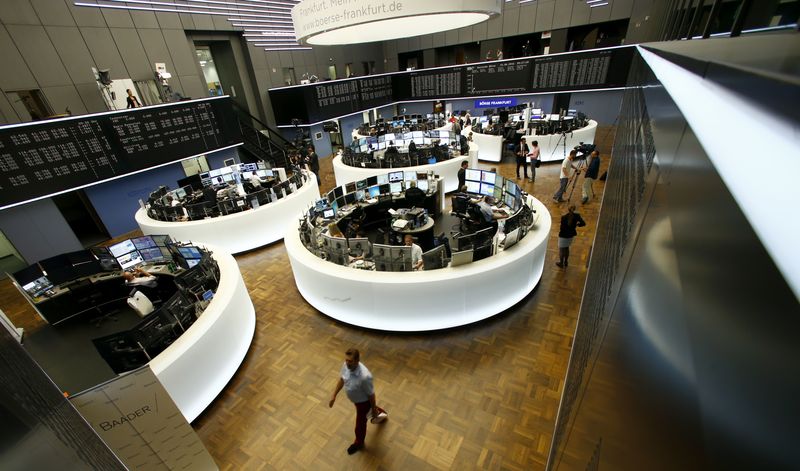
European companies are being priced for stagnation in their full-year earnings, but there could still be “significant downside” should U.S. President Donald Trump’s sweeping tariff policies spark a recession in the region, according to analysts at Barclays (LON:BARC).
Companies accounting for about 60% of the pan-European Stoxx 600’s market capitalization are set to report in the next month, with the next two weeks dominated by technology names. Financial and healthcare names will then highlight the busiest period from around April 28.
“Although tariff headlines will likely continue to dominate the market’s focus, the upcoming earnings season may prove crucial as investors scrutinize every comment and statement more than usual to gauge the potential tariff impact on earnings,” the strategists led by Emmanuel Cau said in a note to clients.
They flagged that consensus forecasts for European corporate per-share income growth in 2025 “have not budged” from around 6% even after Trump announced punishing levies on a host of countries — including the European Union — earlier this month. Trump has since partially delayed the elevated levies, but a baseline 10% duty and other tariffs on steel and aluminum and cars remain in effect.
However, they noted that their estimates suggest that flat annual earnings per share expansion is likely in Europe.
“As first-quarter reporting progresses and guidance potentially turns weaker, we expect to see consensus numbers taking a turn lower and catching up with our forecasts,” the analysts said.
They added that a spike in the euro has also increased headwinds to corporate results, although they said “it remains manageable at current levels.”
“The good news is that price action in equities has moved ahead and is already reflecting [roughly] 0% earnings per share growth for now,” the analysts wrote.
However, should the tariffs cause a “full-blown recession” in Europe, more downside may be ahead for both earnings and valuations, they warned.
In particular, cyclical stocks — which tend to be more exposed to broader economic trends — still trade at a valuation premium and “haven’t fully priced in potential recession risk,” they argued.